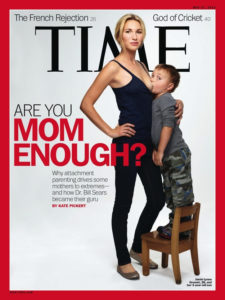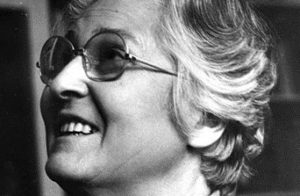Few topics stir up emotional storms like breastfeeding. Questions of global importance seem trivial compared to whether a baby should be breastfed or given formula in a bottle. Why all this agitation? It’s true that breast milk contains ingredients crucial for a baby’s development in the early stages. On the other hand, there are excellent formula products available today. I claim no expertise in the biological aspect of the breastfeeding issue, but I believe some experts (such as Hedberg Nyqvist et al.) have provided a good summary: “To claim that formula feeding is an equally good alternative is not scientifically correct. However, formula feeding is the best alternative for babies who are not breastfed.” One reason why breastfeeding may not occur could be the mother’s emotional attitude. Why are attitudes so different among mothers, and how should we relate to them?

Women I’ve met say, “It’s cozy to breastfeed” or “At the maternity ward, they shoved the nipple into the baby’s mouth.” “I don’t like breastfeeding, but I do it for his sake” or “Breastfeeding fascists insist that breastfeeding is crucial for life.” Some have said, “It’s embarrassing, but when I breastfeed, I feel aroused.” Cozy, dreadful, indifferent, fascist, pleasurable: How can one phenomenon be experienced so differently? I believe the explanation lies in the fact that we humans, on an unconscious level, associate breastfeeding with sensuality. The psychoanalytic concept of “infantile sexuality” covers this phenomenon.
INFANTILE SEXUALITY
An American professor of gynecology, Susan Kellogg-Spadt, writes that breastfeeding can reduce a woman’s sex drive. On the other hand: “Some women note that their bodies seem to respond in a sexual way to breastfeeding and they feel somewhat aroused. It is important to understand that this may be due to hormones released as a result of nipple stimulation and that the response is completely within the realm of normal.” Apparently, biological explanations, such as the significance of oxytocin and prolactin, can apply to both decreased and increased libido. It also seems like she wants to reassure readers that the sensation of arousal is normal – a sentiment I fully agree with. To understand the emotional charge of the question, we turn to psychoanalytic developmental theory.

Sigmund Freud listened to how his patients connected their current psychological symptoms and inhibitions with childhood experiences. Whether they were unpleasant or pleasurable, they were always embarrassing. Patients could gradually talk about the discomfort of being drawn into, for example, an adult relative’s sexuality. But they could also talk about the pleasure they felt. Freud concluded that the child is born with a sexual drive, which immediately begins to cooperate with the instinct to survive. He was uncertain: Had his patients been seduced as children? Or were they fantasies? However, he had no doubt that the child is born with instincts to survive and receive affection (roughly equivalent to today’s “attachment”) as well as the drive for sexuality.

The theory caused an uproar among the public and confusion among analysts. How should we understand the origin and role of infantile sexuality? The French analyst Jean Laplanche linked Freud’s theories with the findings of attachment researchers. He argued that we parents send out “mysterious messages” to our little ones. A mother who finds breastfeeding cozy or pleasurable sends signals that the child – and she herself – only partially understand. The child perceives a caress, a scent, a glance, signals that come “with mother’s milk,” both figuratively and literally. However, the baby only vaguely understands the sources of mama’s joy. A mother who finds breastfeeding cozy may resist linking that feeling to her adult sexuality. She may feel ashamed or guilty, unnecessarily, because she is, after all, “teaching the child to love,” as Freud once put it.

Other mothers feel differently, such as feeling forced by “breastfeeding fascists” to breastfeed and threatened in their personal integrity. If she still breastfeeds, the child may perceive that the interaction becomes unpleasant, strange, or “out of tune.” Advising her to breastfeed may reinforce her experience of intrusion and violation. There are, of course, plenty of other possibilities and ways to “teach the child to love.” Bottle-feeding, gazes, skin-to-skin contact, songs, smiles…
Why then is the idea of infantile sexuality so provocative? Perhaps because it is confused with pedophilia. But the pedophile is an unhappy and often traumatized person whose adult sexuality has never developed. Another answer is that one perceives that the idea is an affront to motherhood. But think about it: we caress, kiss, smell, and gaze at our little ones for hours. Not so different from what we do with the one we love… None of this do we call filth. Another matter would be if the adult were to experience adult sexual feelings and reactions in interaction with the child. Then the alarm bells would, of course, ring. I believe the current cultural trend of imposing adult sexuality on small children is detrimental to children’s development.
In summary, this section aimed to demystify and explain the emotional charge of the breastfeeding issue: “Many women feel sexually aroused while breastfeeding.”
BREASTFEEDING IN PSYCHOTHERAPY

Sometimes, the reverse question is asked: “For how long should I breast-feed?” Today, there is an opinion that the longer you breast-feed, the healthier for the child’s attachment and safety. Once again, I claim no medical expertise on this question, but as a psychoanalyst I doubt such statements. It is true that a little baby needs to be close to mother’s body via the breast, the bottle, or skin-to-skin contact. The latter two are, needless to say, good and enjoyable options for the father as well. Both parents also provide proximity when playing, changing diapers, tucking the baby in for the night, etc.
But, little by little the child needs to extend its horizon. As John Bowlby expressed it, attachment impies the use of a preferred person as a secure base from which to explore and as a haven of safety or comfort when needed. First the base, then the exploration and, in the background, the haven to return to – that’s the idea of attachment. If you look at a baby only a few months old, you’ll see how eagerly he’s checking around, away from the mother and outwards to the wide world.

The French analyst Françoise Dolto coined the concept ”oral castration”. The term may sound barbarous. However, her idea was that at first, the baby needs to bask in the illusion of owning mother’s breast, an idea that Winnicott also defended. Then, the baby needs to learn that this is not the truth about the world. Instead, s/he must learn to express what he wants, to stand that he can’t get everything he wishes and, last but not least, to do something constructive of his frustration. An example: a baby is whining, he has been fed, mother played with him but now she needs to cook the family’s evening meal. He sulks, whines but then starts fingering his lip and makes a funny noise. Such a tiny incident can be viewed as part of the oral castration. One condition, though: all this has to take place within a loving relationship. The baby needs to grasp that mother wishes him well when she does not want to constantly offer him the breast.
When I meet a mother who declares, “I still breast-feed my three-year-old. He thinks it’s so cosy”, I tend to cautiously investigate: Is it really his attitude or his mother’s? Are there any special circumstances in his life or health condition that motivates lengthy breast-feeding? Or, is it rather the mother who places her own ideals in the baby’s mind? Evidently, these are sensitive issues that must be approached with empathy and tact.
To summarize: I think it is the link between our attitudes to breast-feeding and intimacy that explains why this topic is so “hot”. I guess the heat will remain forever. But, the more openly we can discuss it, the better.
